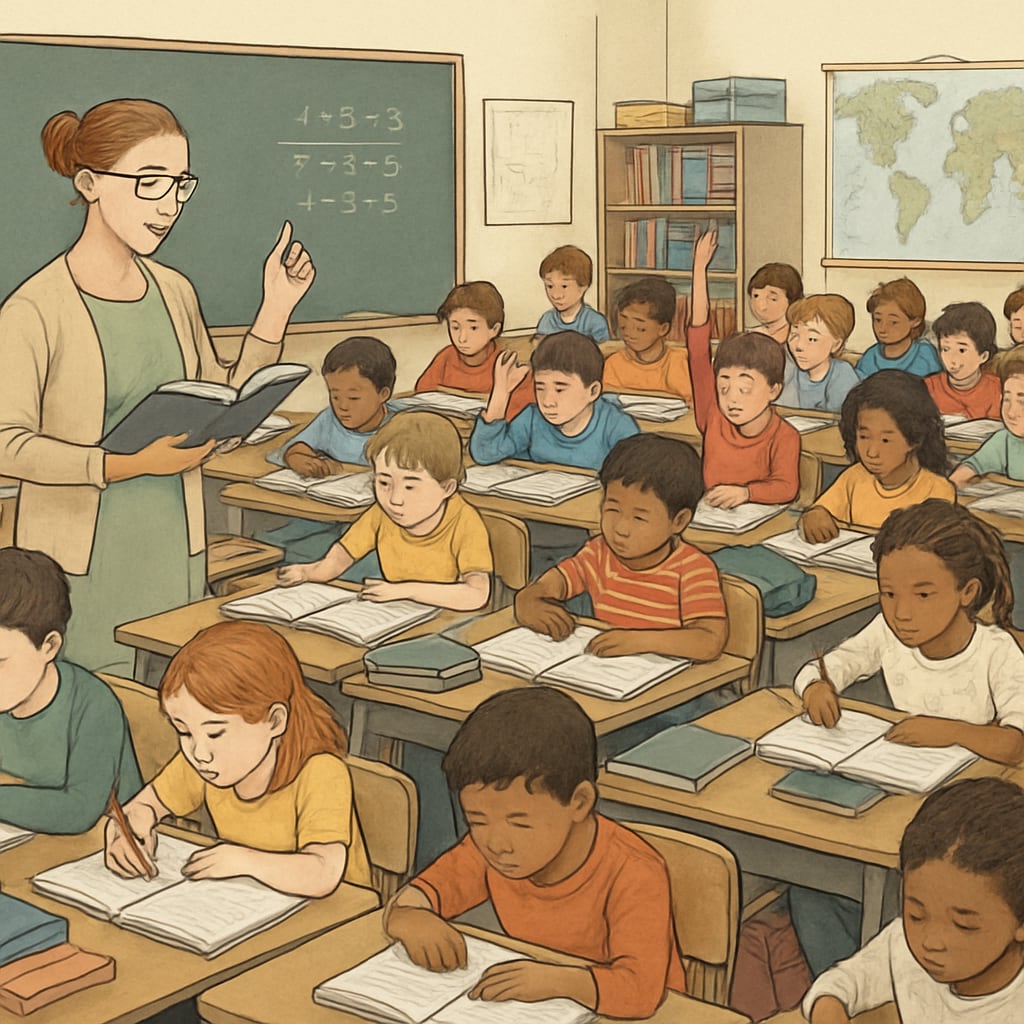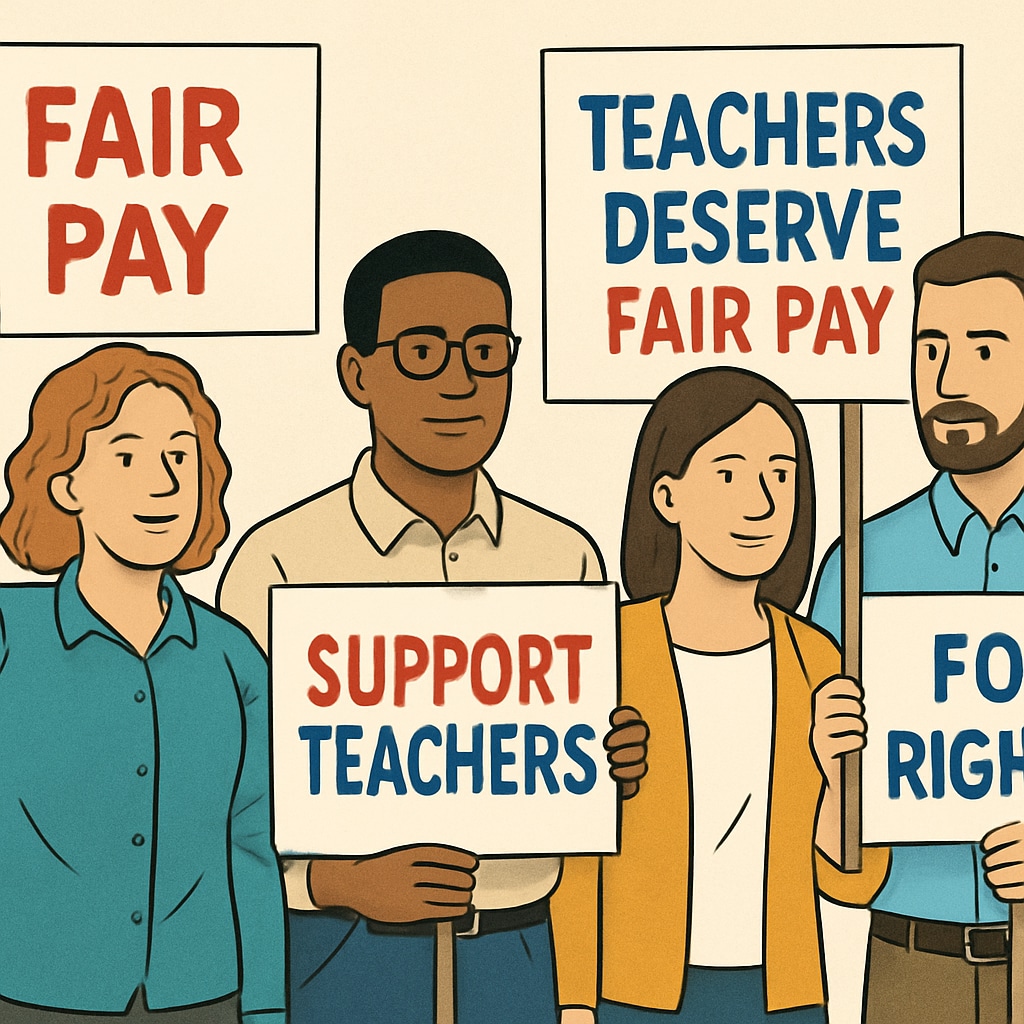In today’s K-12 education systems, issues surrounding teacher rights, working conditions, and school management are frequently overlooked, leaving educators to grapple with significant challenges. From overcrowded classrooms to limited resources, and from low pay to lack of professional respect, teachers are often deprived of the basic necessities required to carry out their educational mission effectively. These silent struggles demand urgent attention, as the well-being of teachers directly impacts the quality of education for students.
Working Conditions: A Persistent Challenge
One of the most pressing concerns for educators is the lack of adequate working conditions. Overcrowded classrooms, insufficient teaching materials, and outdated technology are common realities that significantly hinder teachers’ ability to deliver quality education. For example, many schools lack funding for modern resources such as computers or laboratory supplies, forcing teachers to improvise and often spend their own money to bridge the gap.
The physical environment also plays a major role. Poorly maintained school buildings, lack of air conditioning in hot climates, and inadequate heating during winter months create stressful conditions for both teachers and students. Research has shown that such environments can negatively impact teaching effectiveness and student outcomes (Educational infrastructure on Wikipedia).

The Erosion of Teacher Rights
Another alarming issue is the erosion of teacher rights. In many regions, educators lack a voice in decision-making processes within their schools and districts. Key policies regarding curriculum structure, discipline management, and workload are often imposed without consulting teachers, leaving them feeling powerless and undervalued. This disconnect between teachers and administrative bodies leads to frustration and burnout.
Additionally, teachers face an uphill battle when it comes to fair compensation. Despite the critical role they play in shaping future generations, many educators are underpaid compared to professionals in other fields with similar levels of education and responsibility. This financial strain often forces teachers to take on second jobs, detracting from their ability to focus on their primary role as educators.

Professional Respect and Support Systems
Beyond material challenges, the lack of professional respect and support systems exacerbates the struggles of educators. In many instances, teachers are subjected to undue scrutiny and criticism from parents, administrators, and policymakers, all while managing increasingly demanding workloads. Despite their dedication, they are often undervalued, with little recognition for their efforts.
Support systems for mental health and professional development are also lacking in many schools. Teachers frequently report feeling emotionally drained and isolated due to the absence of adequate resources to address their mental well-being. Studies emphasize the importance of providing mental health support for educators as a means to improve both teacher retention and classroom outcomes (Education on Britannica).
Building a Fair and Respectful System
To address these challenges, it is imperative to create a fair and respectful educational ecosystem. Policymakers and school administrators must prioritize the needs of educators by ensuring adequate funding for school infrastructure, teacher salaries, and professional development programs. Additionally, fostering a culture of collaboration and mutual respect between teachers and administrators can promote a positive working environment.
Parents and communities also play a crucial role in supporting teachers. Advocating for better policies, showing appreciation for educators, and creating partnerships between families and schools can significantly alleviate the pressures faced by teachers. Ultimately, a united effort can help restore the dignity of the teaching profession and enhance the quality of education for all.
Readability guidance: This article uses concise paragraphs and clear transitions to improve readability. Lists and examples are employed to summarize key points, emphasizing solutions to the challenges faced by educators.


